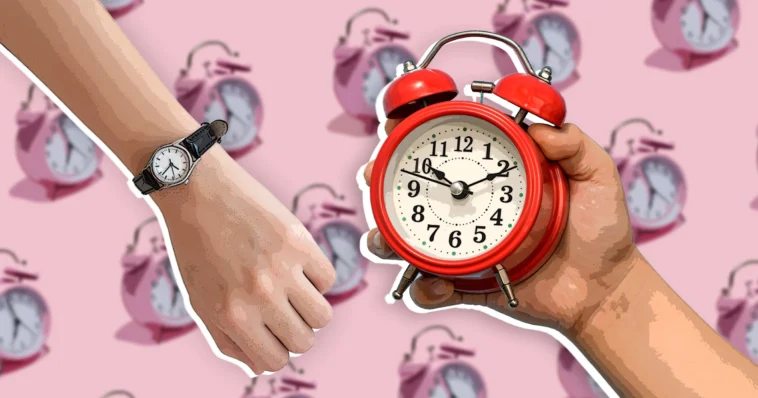There is this saying that “time is the only currency you can spend once.” Another says, “time is the most valuable thing a man can spend.”
We’ve all heard something that points out the reality of time, which is that it’s precious, and once it’s gone, it’s never recovered.
But how do you spend the most precious commodity you have?
Well, research reveals that 20% of adults are serious procrastinators. If that study is anything to go by, then lots of people are struggling with time management.
Three common signs that you’re wasting time or not using it effectively are:
- You often find yourself rushing to meet deadlines and complete tasks on time
- You feel pressured and stressed about tasks that have reasonable timelines
- You find it difficult to stay productive
Poor time management means that you will struggle to reach your full potential. But it’s not like you can’t turn things around.
We’ve compiled strategies to help you improve your time management skills.
1. Map Out Your Goals

Going through life without clear objectives is like taking shots blindfolded. The chances that you will hit your target are slim.
The lack of a long-term roadmap at work or in life, in general, will result in much time wasted because, in the end, the big picture guides your actions and the time you spend on them.
Having defined goals makes it easier to set, accomplish tasks, and review milestones.
2. Capitalize on Your Strengths
We all have strengths and weaknesses.
What are your strengths, and how can they help improve your time management skills?
You can leverage certain things you are good at or take advantage of times when you are at your best to accomplish the bulk of your responsibilities. After all, working on tasks when you are least productive tends to promote distractedness.
If possible, move your free time to when your performance is at its lowest. That way, you can get things done faster and more efficiently while saving time.
3. Have a Plan

Our first strategy was goal-setting. Having a plan goes hand in hand with that.
With your goals in sight, you need to chart a course toward them, which comes down to proper planning.
You will need to analyze your tasks and come up with a realistic schedule you can stick to.
Keep in mind that proper planning is a huge part of effective time management. If you have difficulty planning or sticking to your plan, look for tools to help you stay on course.
For some, a simple to-do list is enough. But it’s advisable to have a more comprehensive time management tool that helps you plan and track your activities.
Here are some time management tools to consider:
- MyLifeOrganized: flexibility and an efficient interface where you can organize various aspects of your life make MyLifeOrganized a must-have
- RescueTime: with rescueTime running on your devices, you can easily track the amount of time you spend on various activities daily and make adjustments
- ActiTime: the software doesn’t just track your time. It allows you to create an in-depth task plan
- Todoist: this is basically a master to-do list app that puts different aspects of your life on one page, allowing you to create tasks and set reminders
4. Start Prioritizing
Prioritizing is crucial if you want to manage your time well. Completing important tasks and reaching your objectives becomes difficult if your priorities are off.
You may want to set your priorities straight, which involves spending time on the most urgent or important tasks and activities first.
To properly prioritize, you should understand that it is human nature to consider less-stressful and fun tasks first, even when the more challenging ones have a higher level of importance.
For instance, you may have hiking or dinner plans in the same time slot as work. Work may rank higher on your priority list, even if it’s not as fun.
However, proper prioritization that gives you a perfect work-life balance requires weighing two factors: urgency and importance.
5. Find Your Happy Place

Managing your time well also requires motivation, which in turn makes you more efficient and productive. If you’re not motivated, the chances are you won’t do much, and you will likely end up wasting time.
One effective way to stay motivated is to make yourself comfortable while attending to your responsibilities. Remember, it’s not just about maximizing your time. You want to be happy and comfortable with minimal pressure while at it.
For instance, staying productive for some may mean self-supervision or sitting in their favorite chair.
What is your happy place, and can you leverage it?
6. Boost Focus
It is crucial to remain focused to manage your time well. After all, if you’re not focused, you are distracted, which is what you’re trying to avoid.
If you struggle to stay focused, look for ways to give yourself a boost. This point builds on finding your happy place.
Have you ever gone through your day without coffee when you’re a total coffee person?
For Zen enthusiasts, it may take an episode of meditation. For cannabis users, a puff or two may be just what they need. If you didn’t know, some weed strains could help with focus and creativity. Veriheal has an informative post on that.
7. Steer Clear of Multitasking

For a long time, many of us thought that the most efficient people are those who are good at multitasking.
Does multitasking get things done? Sure, but not as efficient or even as fast as we thought.
Researchers have discovered that multitasking actually harms productivity. Instead of splitting your focus between two tasks, you are better off attending to one at a time.
The reality of engaging in multiple tasks is that you hardly ever do them to the best of your abilities. And if you’re not really working efficiently, you’re not using your time well.
Final Thoughts
Hardly anyone questions how valuable time is, yet it’s probably the most wasted asset.
Understanding the value of your time is the first step toward proper time management. And with the strategies we have listed, you should be able to gain more out of your time consistently.




